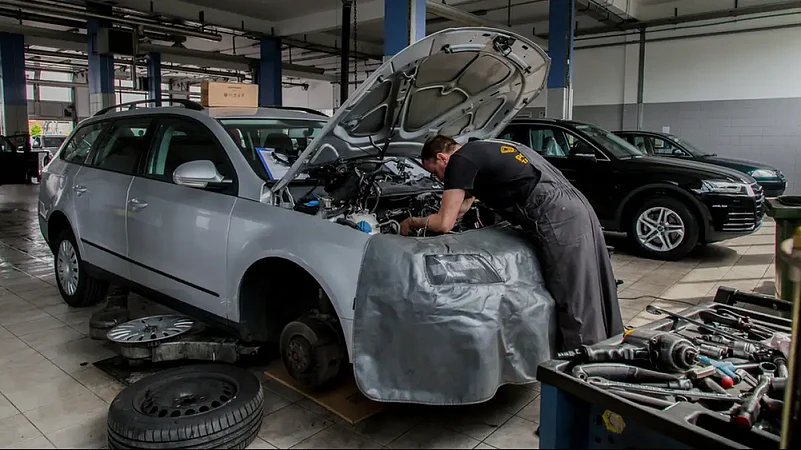These car maintenance guidelines are worth following:
Treat The Tyres

Tyres are among the most crucial parts of a vehicle. They are the four contact patches that you have with the road, and must be kept in really good condition to avoid any mishaps.
Check the tyre pressure on all four tyres as well as that of the spare. During monsoon, some places might see a big drop in temperature. Tyre pressures can drop 1-2 PSI with every 10-degree Celsius change. So do inspect the tyres regularly, and keep the pressure at the optimum level.
Tread depth is also critical for optimum performance of tyres. A simple coin test will tell you if the tyres are past their prime. If the tread depth goes below 1.6mm, replace the tyres.
Additionally, you’ll notice small square shapes in between the grooves of the tyres – these are wear indicators. When the tread depth becomes perpendicular to the direction of the indicator after prolonged use, it’s an indication that the tyres must be replaced.
Also be mindful of rotating and getting your vehicle’s tyres balanced from time to time.
Under The Bonnet

There are some basic checks that must be done periodically, especially during the monsoon.
Coolant in the car must be at the advised level (refer to owner’s manual) and the battery terminals must be free of any grime or dirty deposits.
If possible, do check the condition of the spark plugs. This can be a tricky exercise and may require tools and specific knowhow, so it’s best to visit the workshop or a trusted mechanic.
All the belts should be in top working condition. If you spot any cracks or signs of fatigue, get the belts replaced immediately. The belt that powers peripherals like alternator, power steering pump, AC compressor etc. must be kept in flawless condition.
The engine oil in your car does a lot of things – it lubricates the moving parts inside the engine, helps act as a sealant against debris, cools the engine, reduces friction, and helps prevent engine corrosion.

















